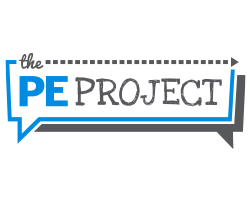Physical education is an essential component of a well-rounded education. It not only promotes physical fitness and health, but also teaches valuable life skills such as teamwork, leadership, and perseverance. However, the methods used to teach physical education can vary widely, and one popular teaching style is the 'divergent production' teaching style (aka divergent discovery) developed by Muska Mosston and Sara Ashworth.
The divergent production teaching style focuses on developing creativity and problem-solving skills in students. It encourages students to explore and discover their own solutions to physical challenges, rather than relying on set instructions or pre-determined outcomes. This teaching style is often used in physical education classes that involve games or activities that require problem-solving and decision-making, such as team sports or adventure activities.
Mosston and Ashworth identified six different student-centered teaching styles, including the divergent production teaching style. They described this teaching style as follows: "In this style, the teacher sets a problem or challenge, and students are encouraged to generate as many different solutions or outcomes as possible, using their own ideas and creativity."
One example of how the divergent production teaching style can be applied in physical education is through the use of small-sided games. Instead of simply telling students how to play a game, the teacher can set up a problem or challenge, such as how to score a goal while using only one foot. Students can then work in small groups to come up with different solutions and strategies to meet the challenge.
Another example is through adventure activities, such as orienteering or rock climbing. Instead of simply telling students how to complete a course or climb a wall, the teacher can set up a challenge and encourage students to use their own problem-solving skills and creativity to find a solution.
The divergent production teaching style has been shown to have many benefits for students. It promotes creativity, independent thinking, and problem-solving skills, all of which are important life skills. It also encourages active participation and engagement in physical activities, which can lead to improved physical fitness and overall health.
In conclusion, the divergent production teaching style is a valuable tool for physical education teachers. By encouraging students to use their own ideas and creativity to solve physical challenges, teachers can promote important life skills and improve overall student engagement in physical activities.
References
- Mosston, M., & Ashworth, S. (2008). Teaching physical education (5th ed.). Benjamin Cummings.
- Siedentop, D., Hastie, P. A., & van der Mars, H. (2011). Complete guide to sport education (2nd ed.). Human Kinetics.










